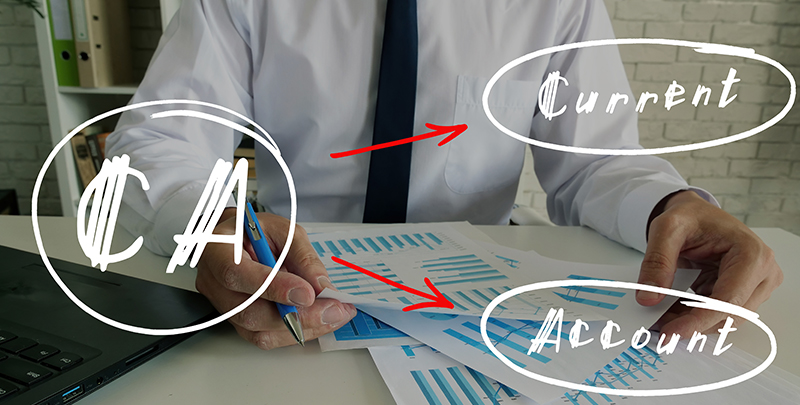Banks offer different types of accounts. A savings account is a popular account for individuals. A Current Account is another one. It holds relevance for people who handle
a business and undertake large transactions. If you own a business, it is important to have a Current Account to manage business transactions.
What is a Current Account?
A Current Account is a type of deposit account. It allows you to conduct a high number of transactions compared to a savings account. It includes deposits,
withdrawals and contra transactions. Individuals, Hindu Undivided Families (HUFs), sole proprietors, companies, partnership enterprises, etc. can open Current Accounts in India.
The Current Accounts offered to customers vary between
banks. Axis Bank offers customised Current Accounts to suit varying segments and balance requirements. For example, Axis Bank’s Digital Current Account requires maintaining an average monthly balance of ₹ 15,000 and a monthly cash deposit limit of ₹ 1 lakh.
Features of a Current Account
Current Account benefits vary depending upon the banks. The key features and benefits of the Axis Bank Normal Current Account are:
- Monthly Average Balance Required: Metro and Urban Branches - ₹ 15,000.
- Monthly Average Balance Required: Semi-urban and Rural Branches - ₹ 7,500.
- Monthly Cash Deposit Limit: ₹ 2 lakh.
- You can conduct unlimited NEFT or RTGS transactions online.
- You get unlimited cash withdrawals. It is both within and outside the city where you have your Axis Bank Current Account.
- You get access to a Business Classic Debit Card.
- Free Cheque Book.
- Free Demand Draft or Pay Order.
- Free Alerts, Standing Instructions and Certificate of Balance.
How to Open a Current Account in India?
You can open a Current Account either offline or online. For offline mode, you must visit the nearest bank branch. You can fill out an online Current Account opening form on the bank's official website.
For example, you can open an Axis Bank Current Account via -
- Digital Video Know Your Customer (VKYC) enabled Current Account for individuals having a business.
- Smart tablet enabled Current Account opening. It is available for individuals, sole proprietorships, companies and partnership firms.
- Visiting the nearest Axis Bank branch to physically fill out the account opening form.
[Also Read: Difference Between Savings Account and Current Account]
Documents required for a Current Account
For opening an Axis Bank Current Account, the below documents are required -
For Sole Proprietors
- Entity and Proprietorship’s proof of address
- Proprietor’s PAN card
- Recent passport-size photograph
For public and private companies
- Company’s PAN card
- Company’s proof of address
- Memorandum of Association (MOA), Articles of Association (AOA) and Certificate of Incorporation
- Company’s Commencement Certificate (INC 21), along with Registrar of Companies (ROC) receipt for a Public Ltd company
- Board resolution
- Identity proof and address proof of all the signatories
- Passport-size photographs of signatories
- List of directors and their Director Identification Number (DIN)
- Beneficial owner and Foreign Account Tax Compliance Act (FATCA) declaration
Current Accounts are useful for all kinds of businesses having a high transaction volume. You can now open a Current Account online. Axis Bank offers various customised Current Accounts to suit different sectors and organisations. Their current
account features include unlimited transactions and withdrawals, and zero balance requirements. You can enjoy 24x7 banking via Axis internet banking and mobile app for free. For more details, visit us online.
Disclaimer: This article is for information purpose only. The views expressed in this article are personal and do not necessarily constitute the views of Axis Bank Ltd. and its employees. Axis Bank Ltd. and/or the author shall not be responsible for any direct / indirect loss or liability incurred by the reader for taking any financial decisions based on the contents and information. Please consult your financial advisor before making any financial decision.








